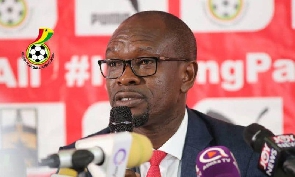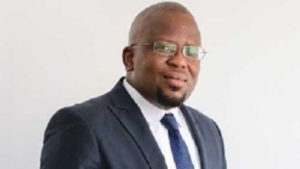STUDENTS of the University of Ghana, Legon, have threatened to use all diplomatic and legitimate means to kick against the Full Cost Recovery Policy being proposed by the authorities of the university.
At this year's congregation on March 15, the vice chancellor, Professor K. Asenso-Okyere, stated that the university can no longer operate without the requisite funding as it is currently doing, and hinted that the full cost recovery policy will have to be adopted.
On page four of the Wednesday, February 19, issue of the Ghanaian Chronicle, the pro-vice chancellor, Prof. Ofori Sarpong, was reported to have called on the government to allow the university to increase the current ?150,000 user fee being paid by students.
In the said report, Prof. Sarpong stated that the government provided only ?63 billion representing a little over 20% of the institution's budgeted amount of ?250 billion.
These pronouncements by the two topmost authorities of the premier university signalled to students that, come next academic year, they may be asked to pay the full cost of their education or at least there will be astronomical increases in the various user fees they are paying currently.
The full cost for training students at the university has been stated as approximately ?19 million and ?24 million for the humanities and the sciences respectively.
As the issue has become topical, the Juniors Common Room (JCR) of the Akuafo Hall organised the maiden edition of a forum dubbed "Legon speaks," and was themed "full cost recovery; who pays and how?".
Speaking at the well-attended forum last Friday, the dean of students of the university, Dr. Vladmio Antwi-Danso, explained that in an attempt not to compromise the quality of training offered by the institution, it is high time the university got the total required funds to make it fully operational but the question of who pays cannot be decided on by the university.
He reiterated the point that the institution currently receives less than half of the total amount needed for effective work to be enhanced.
"The dean's office that used to take care of 3000 students still remains as it was, but now taking care of over 18,000 students, the increase in the number of students should have corresponded with an increase in the size of the office and its facilities," the dean who is also a fellow at the Legon Centre for International Affairs (LECIA) lamented.
Dr. Antwi-Danso further disclosed that practical lessons for students of the science faculty have been drastically reduced from the expected 24 within a semester to only 10 due to financial constraints.
He hinted that as a last resort, the university may have to reduce its yearly intake drastically to ensure the effective use of the limited facilities on the campus.
In his contribution at the forum, the renowned educationist, Mr. K. B. Asante, observed that there is the need for greater and equal access to tertiary education, if Ghana is to have her vision of being a middle income country within the next few decades realised.
He noted that this is impossible, if policy makers and implementers continue to tread on the old ways of doing things. The renowned scholar advised that there should be a vigorous effort aimed at alleviating the problems confronting the educational sector because, as he put it, tertiary education is a must.
In his opinion, tertiary education is beneficial to both the individual and the state but the commitments by the state towards the education of her citizens should be viewed as contributions by the individuals.
Later in a discussion, the MP for Ahafo Ano-South, Hon. S. K. Balado Manu, opined that the cost of tertiary education should be shared by the student, government and the larger society.
This statement did not, however, go down well with students as they contended that they constitute part of the larger society and are already over-burdened.
Hon. Balado Manu who is the chairman of the parliamentary select committee on Manpower development and Employment and a ranking member on the Education committee, emphasised that government alone cannot bear the full cost of tertiary education because the other levels of education and other sectors of the economy need equal financial commitments from government.
On his part, the Minority spokesperson on education, Hon. Kosi Kadem, disagreed with the view that government cannot afford the full cost of tertiary education. The MP contended that monies meant for education are not used for the intended purposes but are diverted to other sectors.
He explained that it was in the light of the appreciation of the problems confronting the funding of education that the Getfund was established. Hon. Kadem continued that the act that established the Getfund stressed that in the disbursement of the fund, a greater percentage should go to tertiary education.
"This year alone, the Getfund is expected to generate over ?400 billion. The budget has also allocated over ?2.5 trillion to the education sector. Apart from these, there are also some funds from the scholarship secretariat. If all these are properly used, there is no way tertiary education cannot be funded by government," the legislator analysed.
At the end of the discussion, students' contributions and questions sent clear signals that any attempt by the government or the university authorities to introduce the policy will be met with a stiffer opposition from the student front.
A few days earlier, the president of the National Union of Ghana Students (NUGS) Mr. Omane Boamah had assured students, in his presentation at the annual week celebration of the Political Science Students Association (PASSA), that his outfit will do everything possible to make the introduction of the policy impossible.
Meanwhile, facilities at the university are being overused due to large numbers, leaving them fast deteriorating.
Presently, rooms meant for two students at the various halls of residence are now being occupied by between eight and ten students. In each room there are five official occupants and the rest are those who have come to be known in the school as perchers.
With these problems one can imagine the fate of the premier university and the difficulties that students might be going through.












